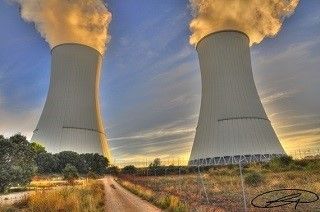Briefly, Where Does Nuclear Energy Stand?

Wilco. Those of us that understand the urgency of creating a low-carbon energy future see the need to understand the potential contribution of nuclear power. To that end, it’s a good idea to review an occasional article on the subject, like one linked above from the former commissioner of the Nuclear Regulatory Commission, outlining the practicalities associated with the further expansion of nuclear facilities.
In a nutshell, nuclear faces a host of challenges, none of which is new to those who look to this resource to save humankind from climate change catastrophe. Many such plans called for extending the 40-year licenses that were associated with the first generation of nuclear plants for an additional 20 years. This process has proved daunting for essentially all who have attempted it; it’s expensive and extremely time consuming, even when it works successfully, which it often doesn’t.
Generating new licenses with existing technologies is also a difficult task, insofar as history has shown us that the permitting and construction of such plants almost always takes many years longer and many millions of dollars more than was initially forecast.
The third option, one that is most attractive to all, is “advanced nuclear” (see chapter two in Bullish on Renewable Energy), rooted in technologies that have the potential to be perfectly safe operationally, provide no opportunity for the development of nuclear weapons, and have essentially zero waste. The problem here, however, is that the commercialization of such technologies is a minimum of 20 or 30 years in the future, which, at least in the eyes of the author of the above linked article, render them irrelevant.
If I may editorialize, I don’t believe this makes advanced nuclear at all irrelevant. We’ll still be here in 30 years, and it’s very likely that we’ll still be looking desperately for a source of low-carbon energy.
